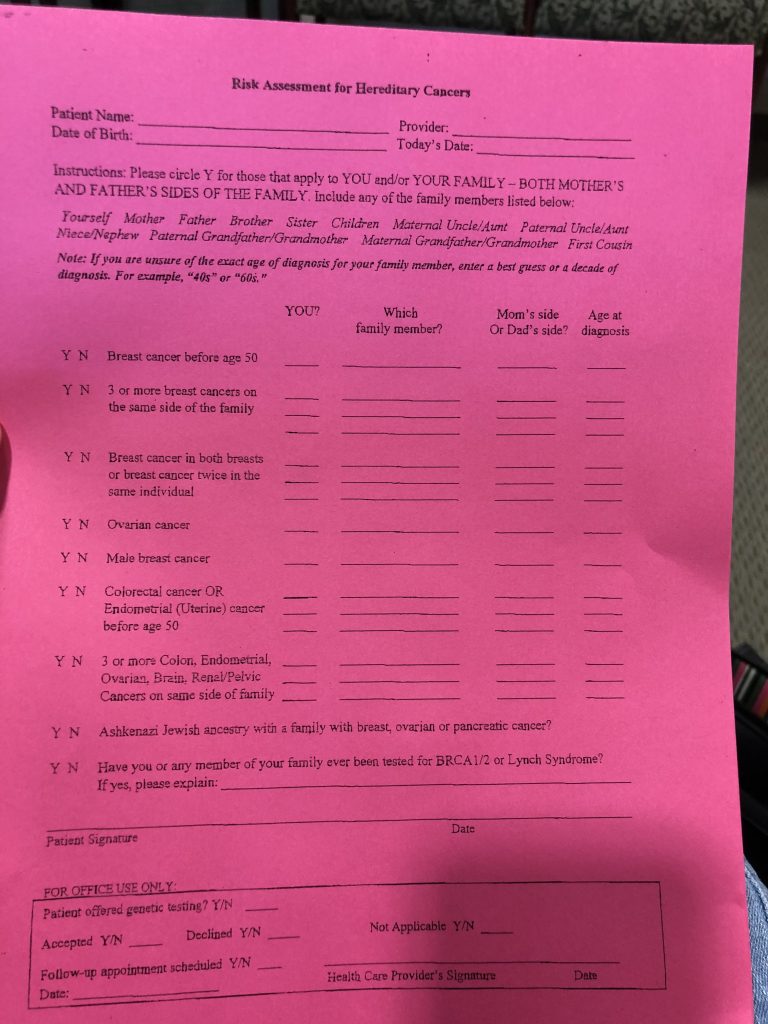Genetics
What are your risk factors for having a hereditary cancer? Could you have a gene that increases your likelihood of developing cancer? Who really needs to be concerned?
- You get half of your genes from your mom and the other half from your dad. The process of meiosis separates chromosomes into highly diversified haploid gametes. (Blah…Blah…Blah. These are the sounds of my teacher days). In layman’s terms: the male sperm and female egg each receive 23 chromosomes. Upon their union, and the creation of a human zygote within the woman’s womb, there become 46 chromosomes, or 23 pair. Remember half of these came from mom (the egg) and the other half came from dad (the sperm). Your sex chromosomes are chromosome pair number 23. This is what determines if you are a male or female. All female eggs have an X chromosome; sperm either have an X or a Y. If a male sperm carries the X then, when combined with the egg, you have a human who is XX (or female). Conversely, if the sperm holds the Y, the human is XY (or male). It is extremely important to note that the BRCA mutations (commonly referred to as the breast cancer genes) ARE NOT ON THESE SEX CHROMOSOMES. The mutation is not on that 23rd pair. So, the mutation can be inherited from either one’s mother OR father. Did you catch that? The breast cancer genes can be inherited from one’s father (who quite likely never showed any symptoms himself). What if he inherited it from his father? Who got it from his father? Are you following? It could have been passed down the paternal line and gone undetected for generations!
- BRCA1 breast cancer gene is on chromosome 17
- BRCA2 breast cancer gene is on chromosome 13
- Although these mutations make someone more susceptible to getting breast cancer, they are rare. Most breast cancer cases occur without a genetic predisposition at all.
- Although the genes are rare, those with them have a significantly increased risk of developing the cancer.
(My BRCA2 gene increased my risk of developing breast cancer up to 84%… and I didn’t have any family history of breast cancer either. It’s likely that my gene was therefore passed down the paternal line. Again, these genes can be inherited from EITHER side of the family.)

To understand your genetic risk and to assess your own medical necessities, talk to your medical providers. Ask them about this form and/or Myriad’s Risk Assessment Quiz.